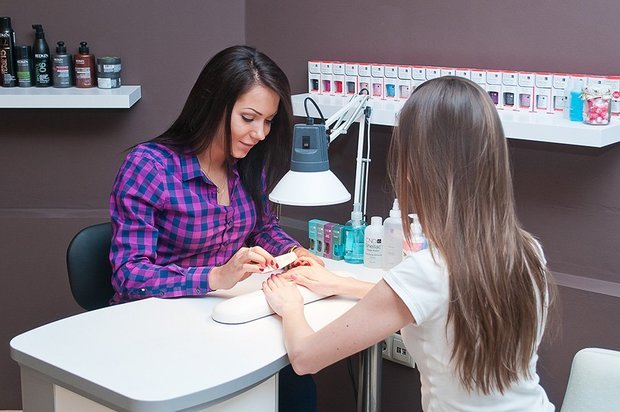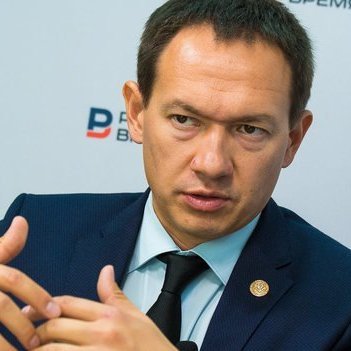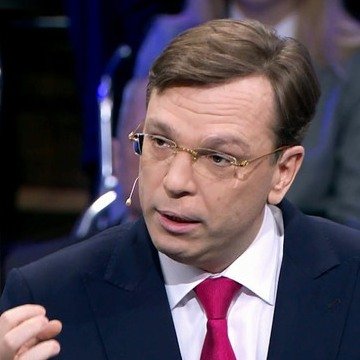Penalties for self-employed: ''Maybe we should do another thing — to punish officials who spend more than earn?''
Russian State Duma is proposing to take income from working women on maternity leave for tax evasion. In reply, experts are calling to take a look at obscenely huge expenses of deputies
Andrey Makarov, Chairman of the State Duma Committee on Budget and Taxes, has proposed to punish self-employed individuals for tax evasion with fines equivalent to their income. But those who work illegally are not ready to legalize their business yet, because small income barely allows their families to make ends meet, and there is no money to pay taxes. Read about why, according to experts, the proposal of the deputy can only damage the legalization of the market and how women on maternity leave in anticipation of the adoption of the bill are already afraid to sell their cakes — in the material of Realnoe Vremya.
lf-employed are threatened with fines
While Tatarstan, Moscow, Moscow Oblast and Kaluga Oblast are preparing to test a special application for self-employed from 2019, the Russian State Duma is thinking over how to punish those who do not want to pay taxes on their commercial activities. Chairman of the State Duma Committee on Budget and Taxes Andrey Makarov (United Russia) has proposed to deprive such self-employed of their income.
''In this context, I would like to offer a mechanism, if people do not take advantage of this already absolutely preferential regime. We are offering: if such income of a person is found, and he or she has not registered it and doesn't pay taxes, they will have to pay a penalty equivalent to their income,'' Makarov declared. He decided not to go into details of penalties, but said, ''I can say one thing — it will happen.''
Anyway, later he specified that he was talking about those who use preferential taxation: ''We are introducing a fine within this preferential taxation. If someone doesn't enjoy the preferential taxation, if it becomes evident that he doesn't pay taxes — he has a common criminal or ordinary tax liability under those articles he will have: non-payment of personal income tax, depending on the amount of tax and so on. Nothing changes here,'' said Makarov. ''There's nothing else here. It is the regime for those who have already registered. That is, you yourself declared that you use it, you yourself use this regime and you violate it. Only for them.''

It is proposed that the self-employed will have to pay a penalty of 20%, but not less than 1,000 rubles of the income amount, for which a receipt was not issued, under the pilot project in the calculations for the violation of the order or the timing of formation of fiscal sales receipts. For repeated violation in the next six months, a fine is expected in the full amount of hidden income, but not less than 5,000 rubles.
Let us remind that the preferential tax regime is designed for natural persons who earn without an employer and without attracting employees. The tax rate for individual entrepreneurs and legal entities is 6%, for natural persons — 4%. Limitations under the regime is 2,4 million rubles of revenue a year. The State Duma is planning to consider the draft bill in the first reading on 25 October.
''These taxes are ridiculous amounts for the Treasury, but for a housewife – significant''
Aliya Zaripova (the name is changed), a resident of Kazan, is being on maternity leave and she is making handmade chocolates to help the family financially.
''We do this not for fun, but very often for money — many have mortgages, children. Few of those on maternity leave earn much, and they do it only for a year and a half. In their family there were two working people, now — one, working on three people. Besides, this activity is often temporary,'' a self-employed woman says.
In her opinion, taking into account the tax, profit will be insignificant. Besides, if they go to register, they are threatened by sanctions in the form of the full amount of the fine and the business becomes unprofitable.
''To pay taxes, it is necessary to register. If you pay the tax, then the profit will be ridiculous. There is a huge competition in big cities, so we make the prices as low as possible. For the Treasury, these taxes are ridiculous amounts, but for housewives — significant. I am just sick and tired that people are pressed from all sides, what do they want achieve by doing this?'' said the interlocutor of the edition.

Her colleague, Polina Ivanova (the name is changed) is being in a similar situation — raising several children on maternity leave, she is making cakes. She does not like the initiative of the deputy.
''Of course, I'm against it. At the moment, I am having very few orders. There is no income as such. But I still have to pay? Why? It turns out they stifle small businesses at the beginning. There is even no possibility to develop. We are afraid even to give advertising in social networks. What if an inspector under the cover sees! Then your favourite work is over,'' a woman on maternity leave worries.
According to musician and journalist Sergey Starograd, he has every right not to pay taxes for his activities.
''I will answer as self-employed who have no desire to pay taxes due to the refusal of conscience to invest in 90% of their distribution channels (for example, on huge wages and pensions of state officials). I believe that I have every right to do so, because I do not enjoy free social services of the system, but choose what I need from alternative commercial structures (by the way, they pay taxes on our income). I can treat this initiative as selfish, short-sighted and even provocative. They will introduce measures, not looking at us, like we will live with such treatment not thanks to such measures, but in spite of them, seeking ways to live contrary to the laws, separated from real life throughout Russia. Whom can I tell that they shouldn't do this? Who listens to us and hears us?''
He treats the Andrey Makarov's initiative only in a negative way.
''Even more evading is the wrong wording. No. We will continue to live on the income from which there is nothing to pay as taxes because there is nothing to pay for. No income, no taxes. The label ''self-employed'' does not mean that it is a free consumer of public services or having an income from which it is necessary to cut a tuft of hair. All the best to Andrey Makarov, let him hang in there. I remember that in the spring he, speaking at a breakfast of Sberbank, complained about the lack of money to perform the tasks set by the president of the Russian Federation. Most likely, taking into account everything the legislators have done over this time, Chairman Makarov is still seeking funds in the ''minefield'' of the self-employed to close off the budget loopholes and report on the work done, because the end of the year is close.''

''Before you threaten self-employed with sticks, you need to provide them with carrot''
Business Ombudsman in Tatarstan Timur Nagumanov says that the sanctions are not a way to develop a legal market for self-employed.
 ''I am convinced that penalties are not a solution to stimulate the legalization of self-employed. As long as we are not in a situation where many self-employed entrepreneurs are massively identified and registered — fines will not work out. Entrepreneurs will prefer to continue to work in the shadow economy, rather than to bring themselves under the risk of fines. I am sure that before you threaten self-employed with sticks, you need to provide them with carrot. The policy of self-employment development should be aimed at creating comfortable, transparent conditions for independent entrepreneurs. Now this work is being carried out — the government is creating mechanisms that will motivate entrepreneurs, working for themselves, conduct activities officially,'' the commissioner for the protection of the rights of entrepreneurs under the President of the Republic of Tatarstan commented.
''I am convinced that penalties are not a solution to stimulate the legalization of self-employed. As long as we are not in a situation where many self-employed entrepreneurs are massively identified and registered — fines will not work out. Entrepreneurs will prefer to continue to work in the shadow economy, rather than to bring themselves under the risk of fines. I am sure that before you threaten self-employed with sticks, you need to provide them with carrot. The policy of self-employment development should be aimed at creating comfortable, transparent conditions for independent entrepreneurs. Now this work is being carried out — the government is creating mechanisms that will motivate entrepreneurs, working for themselves, conduct activities officially,'' the commissioner for the protection of the rights of entrepreneurs under the President of the Republic of Tatarstan commented.
In his opinion, now it is necessary to focus on creating a favourable environment for the legalization of the business of self-employed.
''We have conducted a qualitative study of self-employment in Tatarstan, conducted a number of focus groups with independent entrepreneurs to find out their fears and expectations from legalization, to understand what they want from the government in exchange for their entry into the official field. Many self-employed people are ready to develop and scale. Their expectations are quite clear: zero bureaucracy, maximum digitalization of all processes so that they interact with the state only remotely. Many expect supervisory holidays, benefits, tax deductions. If we help the self-employed, simplify the start-up requirements and create an environment for development in accordance with their expectations, perhaps many of them will create their own companies in the future. But such a breakthrough requires conditions,'' said Timur Nagumanov.
Economist Nikita Krichevsky wonders how Makarov is planning to levy in case of non-payment of taxes the very income from self-employed, because it is impossible to establish its amount for sure.
 ''People in power, in my opinion, have lost touch with reality at all. When Putin amended the 282nd article, he said that was saving it from insanity. He has saved the 282nd from the Duma insanity, but immediately there has appeared another one. Now we have decided to punish the self-employed at the full amount of their income. Where do they get this income from? Maybe it makes sense at the same time with this proposal to make another — severely punish officials with expenses above their income?! Then people might start to listen to them and maybe even believe them,'' commented the economist.
''People in power, in my opinion, have lost touch with reality at all. When Putin amended the 282nd article, he said that was saving it from insanity. He has saved the 282nd from the Duma insanity, but immediately there has appeared another one. Now we have decided to punish the self-employed at the full amount of their income. Where do they get this income from? Maybe it makes sense at the same time with this proposal to make another — severely punish officials with expenses above their income?! Then people might start to listen to them and maybe even believe them,'' commented the economist.
He is very skeptical about the initiatives lobbied by the chairman of the State Duma Committee on Budget and Taxes.
''Makarov has always been distinguished by the fact that by proposing and making amendments that the business community liked, along with them, he carried out completely different amendments under the second paragraphs, which gave unprecedented benefits to large businesses or satisfied someone's selfish interests. For example, a few years ago Makarov proposed the amendments to freeze the increase in UTII, the second point was the proposal under the exchange rate in the area of 60 rubles to recalculate the debt of large oligarchic companies at the rate of June 1, 2014 — at 33 rubles. Thus, these companies did not fall under the interests of the tax authorities. He brought them out of the zone of increased attention of the tax authority,'' Krichevsky cited an example.
Timur Nigmatullin, an analyst at Otkritie Broker, is sceptical about the initiative of Makarov.
 ''Most likely, it will not be realized in the form of a law for political reasons. The thing is that the key macroeconomic indicator that households in Russia and most other countries pay attention to is unemployment (not inflation, the ruble exchange rate or economic growth rates). The self-employed actually effectively reduce the unemployment rate, without requiring additional state spending on social security and maintaining the level of employment. Now unemployment in Russia is being at historical lows. Thus, the legislative initiative will lead to a surge in unemployment with the risk of deterioration of political ratings. Of course, given a large share of cash in circulation (Russia is a ''cash country''), self-employed can very effectively evade taxation. Thus, additional expenditures of the state on collecting payments can simply remain not paid-off,'' the expert believes.
''Most likely, it will not be realized in the form of a law for political reasons. The thing is that the key macroeconomic indicator that households in Russia and most other countries pay attention to is unemployment (not inflation, the ruble exchange rate or economic growth rates). The self-employed actually effectively reduce the unemployment rate, without requiring additional state spending on social security and maintaining the level of employment. Now unemployment in Russia is being at historical lows. Thus, the legislative initiative will lead to a surge in unemployment with the risk of deterioration of political ratings. Of course, given a large share of cash in circulation (Russia is a ''cash country''), self-employed can very effectively evade taxation. Thus, additional expenditures of the state on collecting payments can simply remain not paid-off,'' the expert believes.